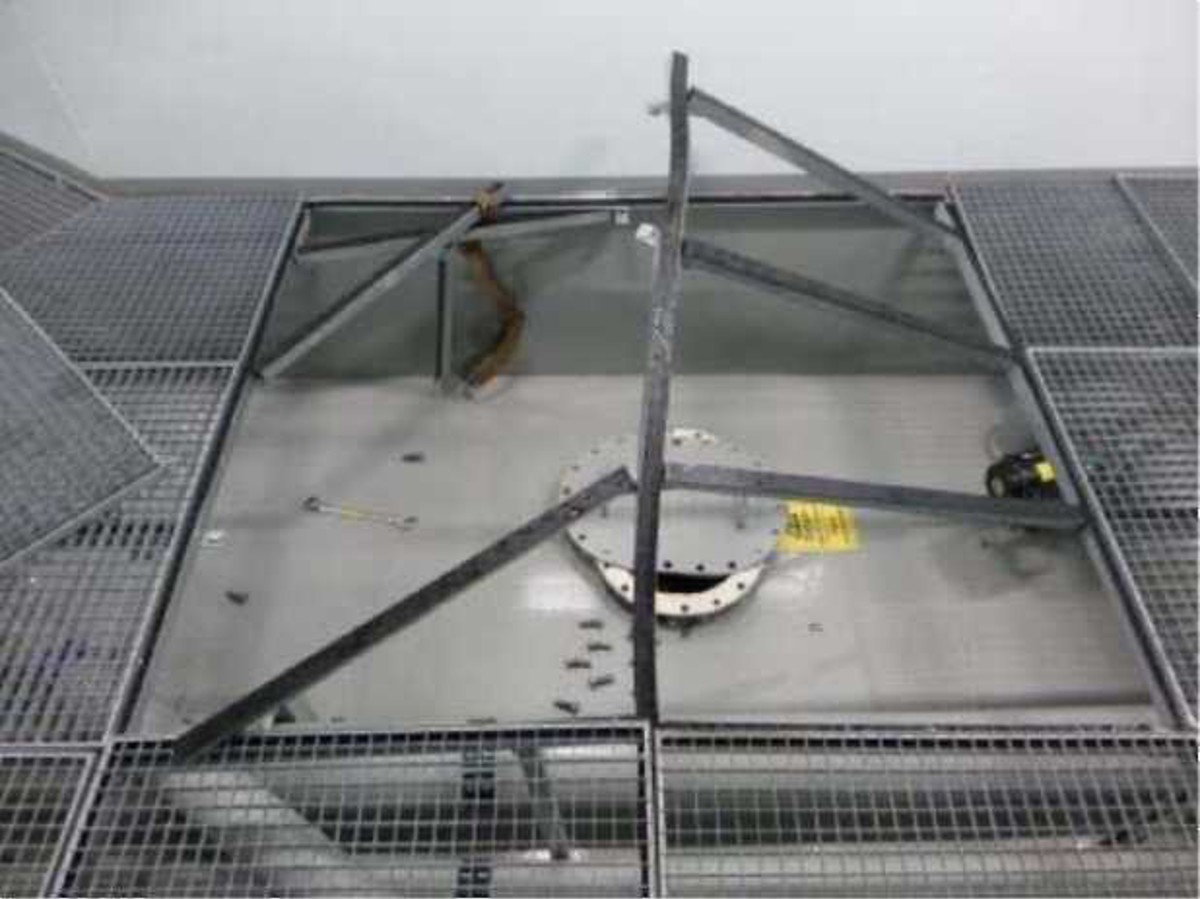Lost time injury (LTI): Crewman injured during opening of tanks
- Safety Flash
- Published on 19 July 2013
- Generated on 26 February 2026
- IMCA SF 12/13
- 2 minute read
Jump to:
A Member has reported an incident in which someone suffered a head injury, when water escaped from a tank when it was opened.
What happened?
The incident occurred during opening of vessel ballast water tanks for ventilation prior to cleaning and inspection. The wrong tank was opened; a tank containing ballast water (the majority of the volume of which was above the man-hole) was opened by mistake, and approximately 180 cubic metres of water flushed out of the tank. The person opening the tank was pushed aside by the flow of water and knocked against other structures, suffering head injuries as a result.
Following first aid, the crewman was taken to hospital for treatment, but later returned to the vessel. The incident was considered an LTI. Our member also considered the incident ‘high potential’ as it could have easily resulted in a fatality.
What were the causes?
Our member’s investigation revealed the following:
- There had been no risk assessment before starting the task.
- No permit to work was obtained for the task.
- There was insufficient familiarisation of persons involved in the task.
- There was no proper communication with regard to which tanks were to be opened and when to open them.
- All nuts were removed from manhole cover prior to breaking the seal.
Lessons learnt
Our Member drew the following lessons from the incident:
- Leave a minimum of bolts on the treads prior to breaking the seal of the manhole.
- Ensure personnel involved in a task have a full and common understanding of what is required before starting.
- Ensure personnel are aware that the job can be stopped if this is not the case.
- Identify requirements for permit to work, isolations and tool box talks before start of task.
IMCA Safety Flashes summarise key safety matters and incidents, allowing lessons to be more easily learnt for the benefit of the entire offshore industry.
The effectiveness of the IMCA Safety Flash system depends on the industry sharing information and so avoiding repeat incidents. Incidents are classified according to IOGP's Life Saving Rules.
All information is anonymised or sanitised, as appropriate, and warnings for graphic content included where possible.
IMCA makes every effort to ensure both the accuracy and reliability of the information shared, but is not be liable for any guidance and/or recommendation and/or statement herein contained.
The information contained in this document does not fulfil or replace any individual's or Member's legal, regulatory or other duties or obligations in respect of their operations. Individuals and Members remain solely responsible for the safe, lawful and proper conduct of their operations.
Share your safety incidents with IMCA online. Sign-up to receive Safety Flashes straight to your email.

